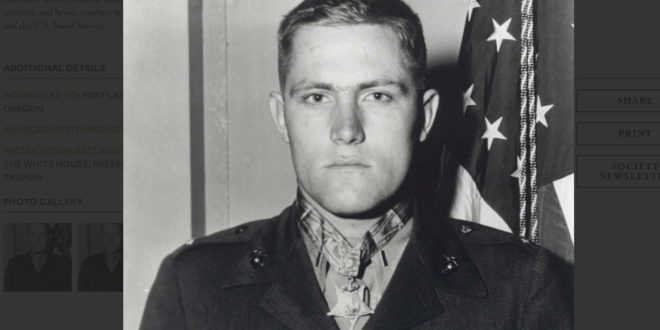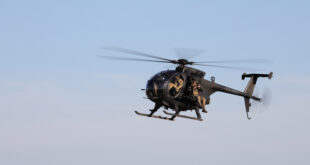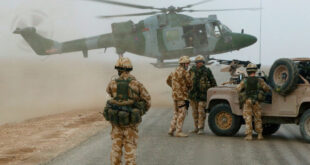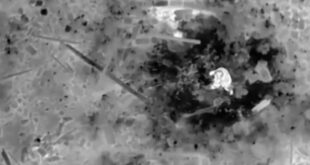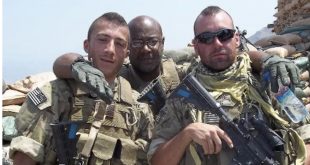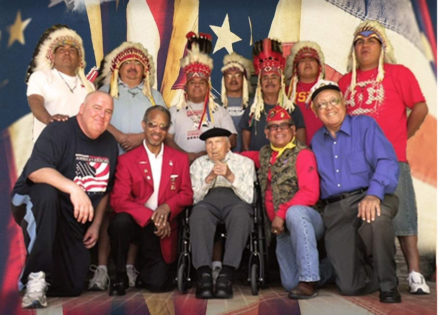
Peleliu Medal of Honor Two Purple Hearts
Art Jackson was the State of Oregon’s last living World War II Marine to receive the Medal of Honor, the highest military decoration for bravery. He received the medal as the result of his heroic actions during the Battle of Peleliu.
While his fellow Marines were pinned down on the beach, and were being slaughtered by Japanese machine-gun fire, Art, in a one-man assault single handedly took out twelve pill boxes and killed over fifty Japanese soldiers.
After which his fellow Marines, who had just watched in awe, ran up to him, and threw him in the air, chanting his last name over and over again and calling him a hero.

I met Art and his lovely wife Sally at our first Milwaukie High School Living History Day. They were extremely friendly and wonderful people. On that day, I made every effort to be in the classroom where he was speaking with two other Marines who had fought at Peleliu.
Art spoke last. “It was so horribly hot and humid, and we had very little water,” he told the students.
“We looked so ragged when we got off that island. I could not take off my pants because the hair on my legs had grown through my pant legs. So, I had to cut my pants off.”
He laughed when telling this story to the students, however, he did not say anything else about his experience on Peleliu.
As it often does, because of his history, a student then will ask about his Medal of Honor, being the humble man he was, Art always answered, “It’s really nothing to talk about. I was no hero. The heroes are the Marines who never made it off that island.”
Later during our Assembly of Honor, I recognized Art individually. Immediately, all the veterans present stood and started clapping, then all the students soon joined in, and everyone started applauding, giving him a glorious standing ovation.
When the day was over, Art asked if he could take me to breakfast the following morning before he and his wife drove back home to Boise.
“Of course,” I responded. “I’d be honored.”
After we had finished breakfast, Art handed me a personal check made out in my name. After being blown away, I started thanking him profusely and told him, “I’ll put this towards our Living History Day funds for next year.”
However, grabbing my arm before I could continue, he said in a firm voice, “No, this is for you, and you only. Spend it on something special for yourself. I’ve been to many, many events honoring veterans in my life, including a ticker-tape parade in New York City and the Medal of Honor ceremony at the White House.”
“What you and all your Milwaukie High students did yesterday was the most impressive event I’ve ever seen. And it couldn’t have been done without you, so that you deserve it.”
Art was so impressed with the Milwaukie students on that first Living History Day that he returned for a surprise visit in the winter for a pep assembly, where he thanked everyone for what they had done for the veterans.
He then donated a collection of classic books valued in the thousands to the school library. Then he honored me by presenting me with a bronze sculpture of an eagle, which now sits in my office.
In the 80s, well before our veteran events, I had started a school chant during a pep assembly that the Milwaukie students still yell today. “Mustang Born! Mustang Bred! Gonna Be a Mustang Till I’m Dead!”
Upon receiving my eagle from Art, all the students started to chant the chant, and then suddenly Art began to lead them in it. “MUSTANG BORN!” he yelled over and over again. And each time he did, the students, every one of them on their feet, would yelled back, “MUSTANG BRED! GONNA BE A MUSTANG TILL I’M DEAD!”
The students loved him, so much so that our student body president presented Art a Mustang Blanket, a special honor given to individuals who have contributed to the honor and traditions of Milwaukie High School.
In April 2007, eleven years after attending the first event, I was able once again to convince Art and his wife Sally to return to Oregon, this time to attend the first Oregon Military Hall of Fame induction ceremony.
Our nonprofit organization, Remembering America’s Heroes, had started the Oregon Military Hall of Fame, and Art Jackson was to be the first inductee.
At the ceremony, Art was as always very humble and gracious. He told the audience what he had said to the Milwaukie students eleven years before: “I was not a hero, just very lucky. The real heroes are the Marines who didn’t make it.”
In 2013, I was working at Evergreen Aviation & Space Museum as the Veterans Outreach Coordinator. At that time, the museum was thinking about building a display honoring Oregon’s Medal of Honor recipients. Of course, thinking of Art, I called him to ask if he would consider donating his medal.
He then began to tell me a most disheartening story. “My original Medal of Honor was stolen from my hotel room while I was in New York with other World War II Medal of Honor recipients at an event where we were being saluted. I left it on my bed and went out to dinner. When I returned to my room it was gone. The medal I own now is only a replica.”
“How I got the replica was an old Marine buddy, ‘Speedy’ Wilson, told me that someone told him my medal was on display at a local TV repair shop in South Carolina.”
“When the owner heard about it being stolen he sent it back to me. But when I got it and opened up the package, I looked on the back of the medal. My name, Truman’s name, and the date of my action were not on the back.”
Upset over this, I went to the founder of our museum, Del Smith, and asked if we could get involved. He gave the green light, and quickly wrote down the name and email address of the producer for the ‘Bill O’Reilly Show’ on Fox News.
A little while after sending an email to that producer at Fox, they ran a segment on the story. The result was a lot of really pissed-off Marines across the nation but no luck retrieving the medal. I had to call Art and tell him how sorry I was that my efforts had failed.
Because this national news story brought attention to Art, a past incident in his life began to resurface. Art called to warn me about this.
“I want to personally tell you about something that happened in my past so that you don’t hear about it secondhand.”
“While I was a captain stationed at Guantanamo Bay during the Bay of Pigs incident. I discovered a known Cuban spy who was in a restricted part of the base. We escorted him to a gate, but the gate was locked so the other officer with me went to find something to open it with.”
“While we were waiting, I was trying to pry it open, when suddenly the spy lunged at me, and in the scuffle, I shot him. Instead of reporting it we buried the body on the base. We were afraid they’d try me in a Cuban court, and I’d be tortured. But word got out, and I was flown to Washington, D.C., where I was quietly discharged.”
I thanked Art for telling me this personally before I would have heard about it in the news. I then told him that it did not change how I felt about him.
I’ve never judged any veterans for their actions while in the line of duty. I wasn’t there and have no idea how I would have responded anyway.
In April 2013, I organized a ‘Night to Honor Marines’. Included in the evening’s program was a showing at an IMAX theater of the John Wayne movie The Sands of Iwo Jima.
I knew Art had health issues that kept him from traveling, but I really hoped Art and his wife Sally could attend our event. In two different phone calls, I begged them to be part of our celebration. “Come back to Oregon one more time,” I pleaded.
“I’m so sorry, Ken. We would love to,” Sally replied, “but Art needs help getting in and out of his wheelchair. He is now completely dependent on me. We don’t often leave the house anymore.”
However, two days later Sally called me with an offer to come after all.
“If you can get someone, preferably a fellow Marine to help get us there, we’ll come to Oregon one last time.”
I immediately started asking around and found a Marine living in Boise. This Vietnam veteran agreed to help bring them to Portland. I was ecstatic.
The event was a tremendous success. In attendance were Marines from World War II, Korea, Vietnam, Afghanistan, Desert Storm, and Iraq. I honored each of these Marines individually by projecting images of them onto the giant screen. For each I had a picture of them as an active Marine side-by-side with a current picture. I cannot tell you how moving, and emotional those moments were to all of us.
Because this quite likely would be his final time attending our events, for the final veteran I decided Art of course would be the last. When his picture appeared, and after his introduction was finished, all the Marines immediately stood and gave him a standing ovation, with the rest of the audience joining in as well.
When the applause had died down, Art, sitting in his wheelchair, reached into his pocket, and pulled out a harmonica and started to play ‘The Marine Corps Hymn’. While he was playing there was not a dry eye in the entire theater.
Then Art did something I later found out he does every time he plays this song, he ended it by playing a couple of lively notes. After which he stopped and gave a giant smile and began to laugh. Doing this of course brought light back into the room and made all in the room cheer and applaud him all the more.
The next day, I surprised Art and Sally by taking them to the spring banquet of the Oregon Chapter of the Chosin Few. A club named for the men who fought in the Chosin Reservoir Battle in North Korea, one of the toughest and most iconic battles of the Korean War. Every one of those Korean War vets, including some World War II in attendance, responded as if a celebrity superstar had entered the building.
During the banquet, Art asked for everyone’s attention, and with all eyes on him, Art again pulled out his harmonica, on which he again played ‘The Marine Corps Hymn’. Watching those Marines standing at attention with tears in their eyes is something I will never forget.
The next year I learned of Art’s passing. I also learned that the Marines Corps called Sally to tell her they would like to handle his funeral. Soon after she received a USMC Dress Blues uniform, with dress shoes, and a dress cap. Sally informed them that Art had requested cremation, they told her he was a Marine and to dress him in the Marine Corps Dress Blues anyway.
Unfortunately, I had a commitment keeping me from going to Boise to attend Art’s funeral and support Sally. Thankfully, she understood.
I called her as soon as I could to ask about how the funeral went, and she told me, “Art’s funeral was a full Military Honors ceremony. It even had a Marine flyover from both Utah and Quantico, Virginia. It also had the Marine Rifle Squad, Marine Corps Band, and thirty-six Marines in Dress Blues. It was all very impressive.”
“But, I wish the Marine Corps had recognized him when he was living. Ever since the Guantanamo Bay incident, they didn’t want to have anything to do with him.”
Art Jackson passed away at the age of 92 in June of 2017.
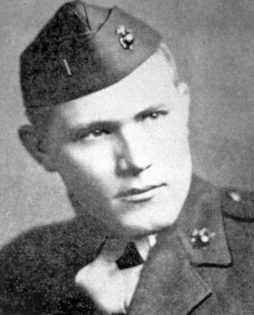
MOH CITATION
For conspicuous gallantry and intrepidity at the risk of his life above and beyond the call of duty while serving with the 3d Battalion, 7th Marines, 1st Marine Division, in action against enemy Japanese forces on the island of Peleliu in the Palau group, 18 September 1944. Boldly taking the initiative when his platoon’s left flank advance was held up by the fire of Japanese troops concealed in strongly fortified positions, Pfc. Jackson unhesitatingly proceeded forward of our lines and, courageously defying the heavy barrages, charged a large pillbox housing approximately 35 enemy soldiers. Pouring his automatic fire into the opening of the fixed installation to trap the occupying troops, he hurled white phosphorus grenades and explosive charges brought up by a fellow marine, demolishing the pillbox and killing all of the enemy. Advancing alone under the continuous fire from other hostile emplacements, he employed similar means to smash two smaller positions in the immediate vicinity. Determined to crush the entire pocket of resistance although harassed on all sides by the shattering blasts of Japanese weapons and covered only by small rifle parties, he stormed one gun position after another, dealing death and destruction to the savagely fighting enemy in his inexorable drive against the remaining defenses, and succeeded in wiping out a total of 12 pillboxes and 50 Japanese soldiers. Stouthearted and indomitable despite the terrific odds, Pfc. Jackson resolutely maintained control of the platoon’s left flank movement throughout his valiant one-man assault and, by his cool decision and relentless fighting spirit during a critical situation, contributed essentially to the complete annihilation of the enemy in the southern sector of the island. His gallant initiative and heroic conduct in the face of extreme peril reflect the highest credit upon Pfc. Jackson and the U.S. Naval Service.
MOH
For conspicuous gallantry and intrepidity at the risk of his life above and beyond the call of duty while serving with the 3d Battalion, 7th Marines, 1st Marine Division, in action against enemy Japanese forces on the island of Peleliu in the Palau group, 18 September 1944.
Boldly taking the initiative when his platoon’s left flank advance was held up by the fire of Japanese troops concealed in strongly fortified positions, Pfc. Jackson unhesitatingly proceeded forward of our lines and, courageously defying the heavy barrages, charged a large pillbox housing approximately 35 enemy soldiers.
Pouring his automatic fire into the opening of the fixed installation to trap the occupying troops, he hurled white phosphorus grenades and explosive charges brought up by a fellow marine, demolishing the pillbox and killing all of the enemy. Advancing alone under the continuous fire from other hostile emplacements, he employed similar means to smash two smaller positions in the immediate vicinity.
Determined to crush the entire pocket of resistance although harassed on all sides by the shattering blasts of Japanese weapons and covered only by small rifle parties, he stormed one gun position after another, dealing death and destruction to the savagely fighting enemy in his inexorable drive against the remaining defenses, and succeeded in wiping out a total of 12 pillboxes and 50 Japanese soldiers.
Stouthearted and indomitable despite the terrific odds, Pfc. Jackson resolutely maintained control of the platoon’s left flank movement throughout his valiant one-man assault and, by his cool decision and relentless fighting spirit during a critical situation, contributed essentially to the complete annihilation of the enemy in the southern sector of the island. His gallant initiative and heroic conduct in the face of extreme peril reflect the highest credit upon Pfc. Jackson and the U.S. Naval Service.
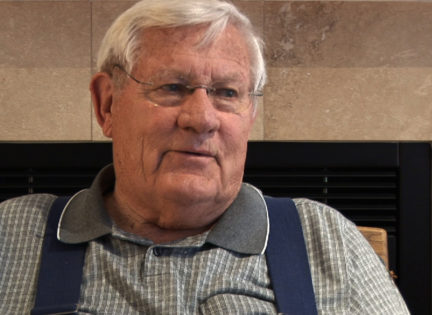
Final Goodby from WWII Museum Historian/Curator Thomas Lofton remembers Art Jackson, a Medal of Honor winner who recently passed away at age 92:
Our nation recently lost a great hero of World War II. A veteran of the US Marine Corps during World War II, Arthur J. “Art” Jackson was a true patriot and a hard-charging American to the end. While he would probably not want me to refer to him as a hero, in my eyes he was one of the rare examples of men who meet the true definition of the word. If someone read Art’s service information, they would understand that he was a rough and tough US Marine. However, I personally knew him as a humble and quiet man of strong character, who at his core exemplified American patriotism to the very end.
I have always admired Art and will forever look up to him. Not only for his combat actions on Peleliu, which lead to his receiving the nation’s highest award for valor, but also for his heroic actions at Cape Gloucester. It was there that the Marine Corps first learned of Art’s character and abilities as a soldier. Facing a well-entrenched enemy at Hill 660, he rescued a fellow Marine who was shot five times by a Japanese machine gun, and carried him to safety. For this action, he received a Letter of Commendation from Major General William Rupertus, commander of his division during the fighting at Cape Gloucester. Remembering that campaign, Art said, “I don’t have many pleasant memories of Cape Gloucester.” To Art, the weather conditions and disease were enemies just as harsh as the Japanese who occupied the island.
Art’s next battle, Peleliu, is the action he is best known for. It was there on September 18, 1944, fighting on a well fortified peninsula of the island that he saved his fellow Marines from being slaughtered by Japanese gunfire.
 Soldier of Fortune Magazine The Journal of Professional Adventurers
Soldier of Fortune Magazine The Journal of Professional Adventurers


